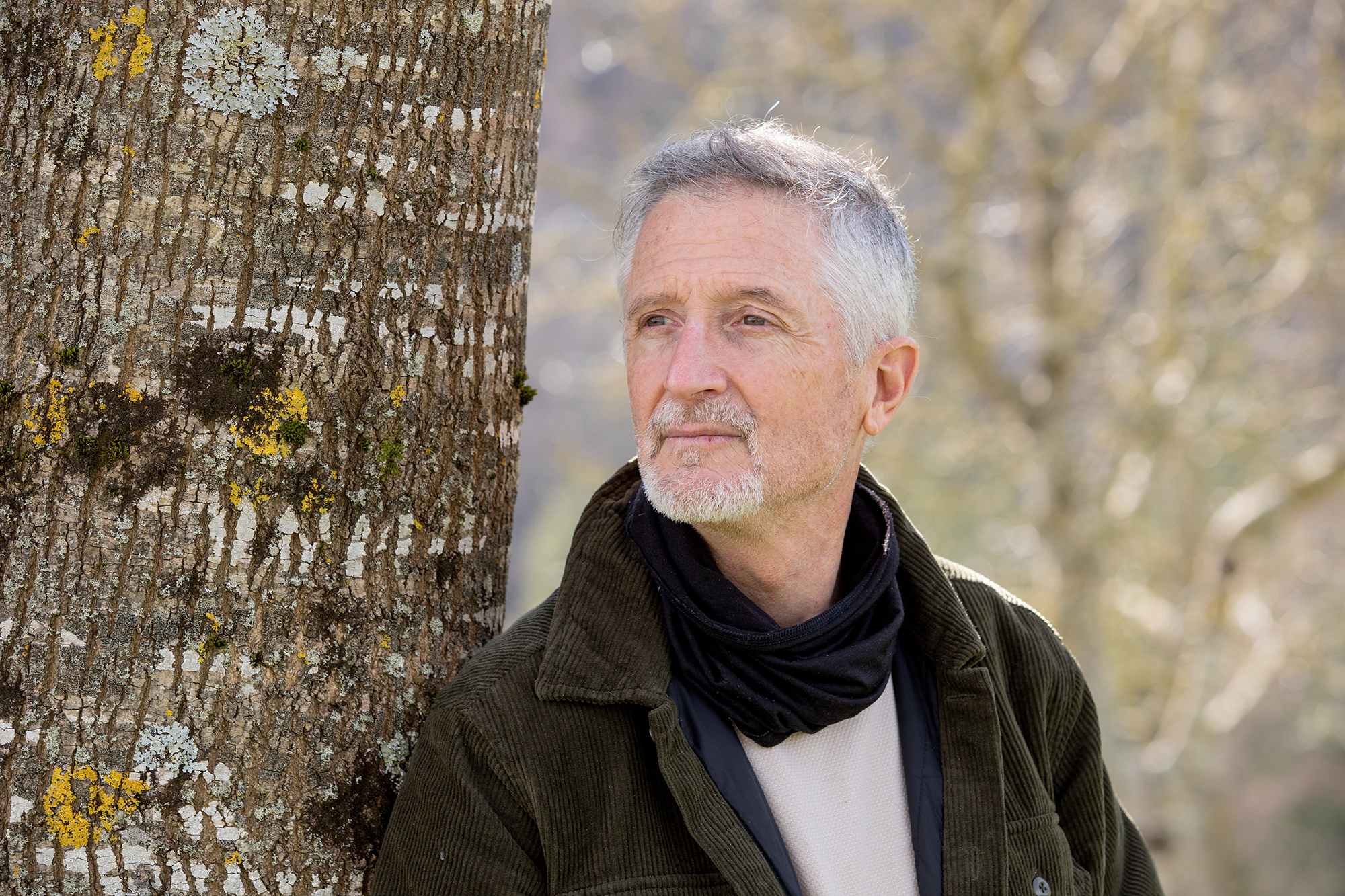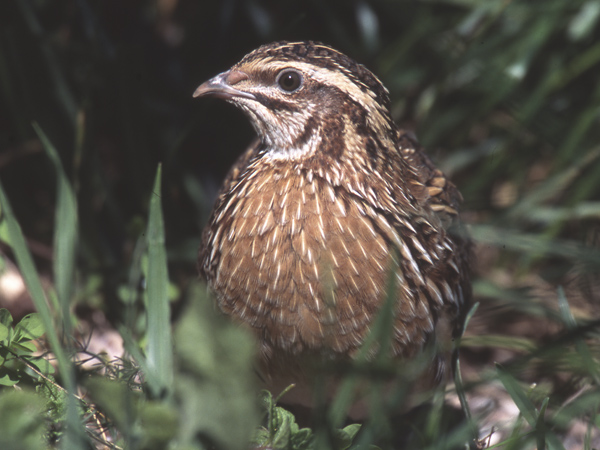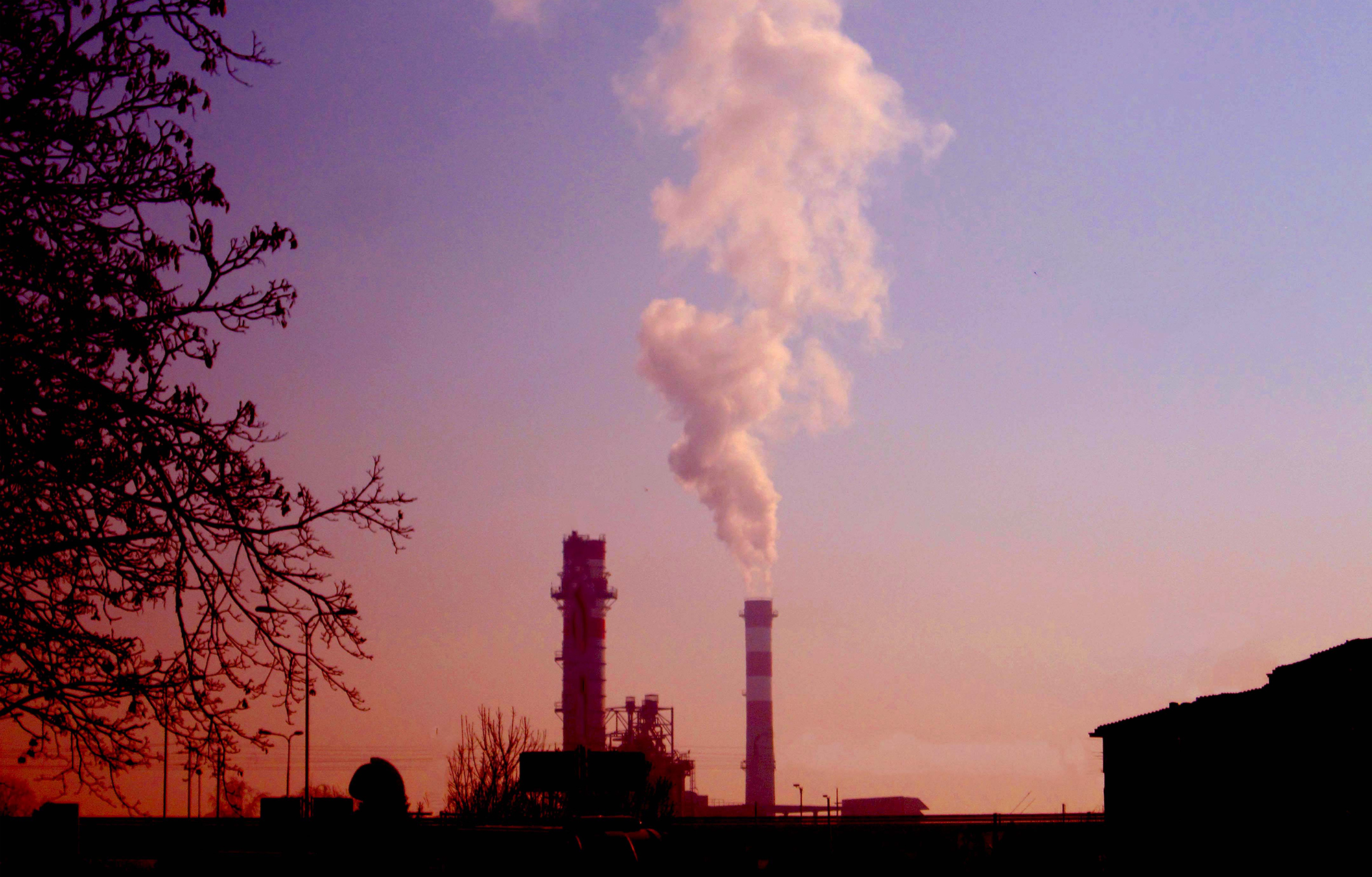The wealth of some, including the misery of the majority, of biodiversity
- In April, Iker Apraiz offered in Azpeitia the talk "The Loss of Biodiversity: Causes and Consequences", in the framework of the "Day for the Defense of the Earth" organized by Euskal Herria Bizirik. Nagore Zaldua and Eneko B. Otamendi has brought to this article the main ideas that were said at that conference.

The main objective of capitalism is the generation of wealth of some, and for that there are no limits. In addition, as needs arise in society, often not real, this wheel increases its speed. In fact, it seems that only the constant “advances” reflect the development of society, progress and continued growth. All to satisfy the hunger for consumption of the human population. However, in an advanced and civilized world, this hunger does not respond solely to the stomach.
"For half a century, when industrialization accelerated technological development, two-thirds of all species in the world and three-quarters of forests have disappeared."
How has that wealth evolved if measured beyond the navel of man? For half a century, when industrialization accelerated technological development, two-thirds of all species in the world and three-quarters of the forests have disappeared. If climate change is an invention, and considering that ecosystems have a great capacity to withstand disturbances (called resilience), then it is quiet. Maybe we would modify the distribution of some kind of monocultures of pines and eucalyptus, but well, we'll also feed some business to overcome the plagues that have occurred as a result. The same is true of the exploitation of the earth, because the rights of human beings are above the rest of the world’s living beings, of course. We need electricity, and on the road to energy sovereignty, better if we can create a little more and what our people need. And in order to generate renewable energy through the wind farms that we want to install on ecological corridors, the impact on birds will at least be marginal green damage. But maybe we don't find it that interesting if we put fans up to our house that will be taller than the Iberdrola tower and that you can dry the clothes hanging; but if it doesn't touch us around, there's no problem. "How bad luck the people affected have had," as in the case of the incinerator. We will admit that "everyone at home wants electricity and the Internet," referring to "this is life" and "what we are going to do to it."
In many cases, the responsibility lies with the public: in order to respond to society’s demand for consumption, a large number of raw materials are needed. And if, by the way, a business is done for that, jobs will be created, therefore, terribly. What's the problem? That the system cannot be maintained as long as society does not maintain such demands, and that, at this stage, nature will hardly be able to overcome all these disturbances suffered by the system. Clearly, approaches are needed to reduce pollution, reduce plastic consumption, recycle the maximum or save water and energy consumption, but administrations also have to shoulder their responsibilities. And if there are institutional agents that are willing to really raise the awareness of society to change the consumption model, let it start to work really. Because we're talking about different scales. Even though we citizens can help in our daily lives with small decisions, the real challenge is to make strong political decisions that call into question the profits of the most powerful companies. And for that, you have to do the work differently, without getting the material richness.
"It is important to promote change in the consumption model and the generation of renewable energies, but to adapt it to the needs of the people and to the scale that corresponds to it"
Although concepts such as food sovereignty and energy sovereignty are not as attractive to the capitalist system, they are attractive to the people, but look, not to do business! It is important to promote the change in the consumption model and the generation of renewable energies, but adapting it to the needs of the people and to the scale that corresponds to it, not with a fully transformed area, without the approval of the citizens. And it doesn't help fool citizens, with scientific reports about possible ecological impacts of macro-projects, or with green propaganda, because scientific results are considered very scientific and reliable, but only when they are of interest to the project promoters. Science must be taken into account, even when the current political dynamic may be a turning point.
It remains to be seen what decisions or measures will be taken to ensure nature conservation, if adopted. There are also issues that give rise to much controversy, whether these are the macro-projects mentioned above, the sustainable management of hunting – which will only be achieved if properly managed – the management of fisheries – taking into account that there is currently one third of the world’s over-exploited species – or the management of macro-farms, are they necessary for food sovereignty? Even in these cases, people who work in the primary sector are often set in motion, and not so much those who make decisions and measures that affect their activity.
"It's time to take action and to make strong decisions and take decisions on the road," he added. In order to minimize the damage to nature (and therefore to all), our administrations will have to be willing to lose something, or at least to win not in money, but for the benefit of all"
It is considered normal that the population affected by the macro-projects should flourish, as the impact is introduced by the window of the house. But it's hard for us to realize the influence these projects are going to have on all of us. Although care is well seen, it seems that we are not able to understand the care of human beings and the protection of the nature of the hand. Environmentalism is something that goes beyond propaganda and whitewashing, and it is also in everyone’s interest. In other words, preventive measures are not enough today to silence demands. Scientists have already said that, let's go late. It is time to take decisive action and decisions: to remember the political consequences and losses for companies. And that, in most cases, is not left to the citizens. In order to minimise damage to nature (and therefore to all), our administrations must be prepared to lose something, or at least not to win in money, but for the benefit of all. And if the authorities work for the good of the people, they will analyze together with the citizens what to create, how and for what. Listening to local realities, making and executing decisions based on them and understanding development from a popular perspective. Conservation and restoration plans and other growth (or de-growth?) must be carried out. policy making. Beyond photography and hypocrisy, we have to force administrations to take real action, because the benefits will be for everyone, and not because we are worthwhile, because we will have no other way out than to be sustainable. And because nature is not at the service of anyone, it should not be understood as a means of exploitation, but as something that belongs to everyone and that should be cared for among all, because it is essential for our survival.
Those of us who were in Azpeitia are clear to us. And so are many other citizens. It is now necessary to stifle as much as possible and to convince more and more. Reinforcing local auzolan, with or without windmills, and assuming the responsibility of all. In the face of recent warming, floods, droughts or invasive species, see if we can promote measures that contribute to the resilience of nature.
Here you can see the talk that Iker Apraiz gave:
Eskola inguruko natur guneak aztertu dituzte Hernaniko Lehen Hezkuntzako bost ikastetxeetako ikasleek. Helburua, bikoitza: klima larrialdiari aurre egiteko eremu horiek identifikatu eta kontserbatzea batetik, eta hezkuntzarako erabiltzea, bestetik. Eskola bakoitzak natur eremu... [+]
Andeetako Altiplanoan, qocha deituriko aintzirak sortzen hasi dira inken antzinako teknikak erabilita, aldaketa klimatikoari eta sikateei aurre egiteko. Ura “erein eta uztatzea” esaten diote: ura lurrean infiltratzen da eta horrek bizia ekartzen dio inguruari. Peruko... [+]
Biologian doktorea, CESIC Zientzia Ikerketen Kontseilu Nagusiko ikerlaria eta Madrilgo Rey Juan Carlos unibertsitateko irakaslea, Fernando Valladares (Mar del Plata, 1965) klima aldaketa eta ingurumen gaietan Espainiako Estatuko ahots kritiko ezagunenetako bat da. Urteak... [+]
Nola azaldu 10-12 urteko ikasleei bioaniztasunaren galerak eta klima aldaketaren ondorioek duten larritasuna, “ez dago ezer egiterik” ideia alboratu eta planetaren alde elkarrekin zer egin dezakegun gogoetatzeko? Fernando Valladares biologoak hainbat gako eman dizkie... [+]





















